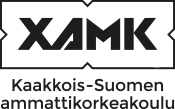Innovation management and IPR law (5 cr)
Code: IB00EC61-3001
General information
Enrollment
06.04.2022 - 02.09.2022
Timing
05.09.2022 - 31.12.2022
Number of ECTS credits allocated
5 op
Virtual portion
1 op
RDI portion
3 op
Mode of delivery
80 % Contact teaching, 20 % Distance learning
Campus
Kouvola Campus
Teaching languages
- English
Degree programmes
- Degree Programme in Digital International Business
Teachers
- Sampo Järvinen
- Mikhail Nemilentsev
Teacher in charge
Mikhail Nemilentsev
Groups
-
IBKV20SP1Digital international business, full-time studies
-
IBKV20SP2Digital international business, full-time studies
Objective
You learn how to productize, commercialize and manage different types of innovations in businesses.
You learn the characteristics of innovation ecosystems in the international context.
You are able how to manage innovation processes effectively in existing and new organisations.
You learn the characteristics and implementation principles of closed and open innovation.
You learn how to plan, implement and evaluate an innovation strategy for profit and non-profit businesses.
You are able to design sustainable innovation processes in organisations.
You understand the importance of protecting your intellectual property and know how to avoid infringing IPR rights.
Content
How to productize, commercialize and manage different types of innovations in business?
What are the characteristics of innovation ecosystems in the international context?
How to develop and manage innovation processes in existing and new organisations?
What are the characteristics and implementation principles of closed and open innovation?
How to plan, implement and assess an innovation strategy for profit and non-profit businesses?
How to design sustainable innovation processes in organisations?
How is the appearance of products, industrial inventions, computer programs, music, photos, texts and know-how protected and how is exclusive right to their use acquired?
Materials
IPR LAW:
f.ex
-A Casebook on the Enforcement of Intellectual Property Rights | Kaakkois-Suomen ammattikorkeakoulu | Xamk Kaakkuri (finna.fi)
-Intellectual Property, Design Innovation, and Entrepreneurship (Springer Series in Design and Innovation, 11): Hillner, Matthias: 9783030627874: Amazon.com: Books
Innovation management:
Course material will be based on some books, business & scientific articles, international reports, and other open material. You will get information about the recommended materials upon studying the course topics.
The recommended book for the course: Innovation and entrepreneurship / John Bessant and Joe Tidd. - Third Edition. Wiley. Available in Xamk e-library.
A short overview of the upcoming themes during the course
Part 1: Entrepreneurship and innovation context
Part 2: Opportunity recognition
Part 3: Resources for innovation process
Part 4: managing ventures, growth and innovation development
Part 5: added value of innovation (process)
Teaching methods
IPR Law, 2 ECTS: Lectures, working in pairs and individually. LEARN exam at the end of the course.
Innovation Management, 3 ECTS: Lectures, working in pairs and individually. LEARN exam at the end of the course.
Employer connections
There will be course project done for the real business with international context.
Exam schedules
There will be an exam in the end of the course covering innovation management and IPR parts.
International connections
The course is planned for the international business context. All material and project cooperation are at the international level.
Student workload
5 ECTS is equivalent to 135 hours of student work.
Content scheduling
Content of the course concerning IPR-Law
How to protect your IP rights?
Trademarks
Designs
Copyright
Content of the innovation management part:
Part 1: Entrepreneurship and innovation context
- processing innovations in/for entrepreneurship
- basics of productisation and commercialisation of innovations
- managing social and sustainable-led innovation
Part 2: Opportunity recognition
- sources of innovation
- search strategies for innovations (including a deeper view of open innovations)
Part 3: Resources for innovation process
- internal & external analysis, scenario development and risk assessment
- individual and team leadership, innovative climate + focus on organizational culture
- types of innovation networks + ecosystems of innovation
Part 4: managing ventures, growth and innovation development
- new product and new service development
- corporate venturing (entrepreneurship & intrapreneurship)
Part 5: added value of innovation (process)
- knowledge development in innovation process
- business models for innovations
- learning & innovation
Evaluation scale
1-5
